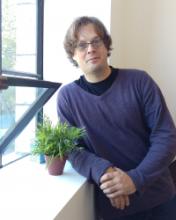This year, I had the pleasure of being a Robert & Pamela Center Fellow with the Stroum Center for Jewish Studies here at the University of Washington. Going in, I was not sure what to expect. I knew that I would be meeting and speaking with other graduate students who were working in and around Jewish studies and with faculty from Jewish Studies, including our own Prof. Richard Block and Prof. Annegret Oehme.
As part of the Fellowship I had the opportunity to write an article about my research to a non-academic audience for the Stroum Center website, which can be found here. This gave me the opportunity to synthesize the first chapter of my dissertation and explain it in a more direct way. As someone who had previously worked as technical writer, whose job it was to explain technical details to the general public, I thought this would be a piece of cake. I was quickly shown that condensing academic work is much harder than doing so with technical information. The staff at the Stroum Center provided great feedback on my article and were very patient as the editing process took longer than expected, as it always does. Especially, as my topic is one that is rather theoretical and one that is not familiar to most Americans. This project forced me to consider what was most important in my chapter and how to synthesize it down to a few concrete examples. In many ways, writing this article helped put my first chapter into its present form!
At the end of the academic year, we took part in a Graduate Student Conference as part of the Stroum Center’s annual graduate student conference, where I presented a paper from another chapter of my dissertation. As I quickly found out, this is not like giving a presentation at an academic conference! I again had to think about providing a clear example to illustrate the mindset of the Maja Haderlap’s narrator in the book I was presenting on and provide straightforward explanations for what was happening based on my research. While I don’t think I was as successful in doing this in the presentation as I was in my article, this experience gave me a lot of food for thought on how to do this better next time.
This was a great opportunity to expand the audience for my writing. I hope to participate in this fellowship again next year and make further strides in writing to non-academic audiences!
